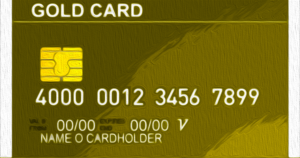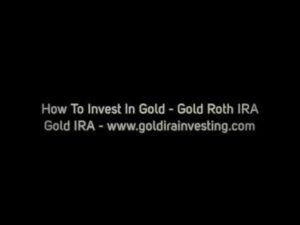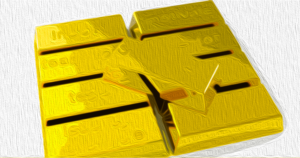
Understanding the Regulatory Approval
In the midst of the excitement surrounding the recent approval of spot bitcoin exchange-traded funds (ETFs), U.S. Securities and Exchange Commission (SEC) Chairman Gary Gensler took the opportunity to clarify the regulator's stance on bitcoin and cryptocurrency. While the approval of spot bitcoin ETFs may have created a positive buzz, Gensler emphasized that this does not imply an endorsement or approval of bitcoin itself.
The SEC's Cautionary Approach
Gensler, in his statement, highlighted that the majority of crypto assets are considered securities, and investors should exercise caution due to the numerous risks associated with bitcoin and products linked to the crypto market. The SEC's role is to protect investors and maintain fair and efficient markets.
A Change in Circumstances
Gensler acknowledged that the circumstances surrounding spot bitcoin ETFs have changed. Previously, the SEC had disapproved more than 20 exchange rule filings for such products since 2018. However, a recent ruling by the U.S. Court of Appeals for the District of Columbia determined that the Commission had not adequately explained its reasoning for disapproving the listing and trading of Grayscale's proposed exchange-traded product (ETP) tied to bitcoin. In light of this ruling, Gensler believes that the most sustainable way forward is to approve the listing and trading of spot bitcoin ETP shares.
Grayscale Investments Authorized for Spot Bitcoin ETFs
Grayscale Investments, a prominent player in the crypto market, was among the 11 issuers authorized by the SEC to list and trade their spot bitcoin ETFs. This approval allows Grayscale Investments to convert its bitcoin trust into a spot bitcoin ETF. The authorized issuers can now list and trade their spot bitcoin ETFs on major exchanges like NYSE Arca, Nasdaq, and Cboe BZX Exchange.
No Implication on Crypto Asset Securities
Gensler made it clear that the SEC's approval of spot bitcoin ETFs should not be interpreted as a signal of the Commission's willingness to approve listing standards for crypto asset securities. He also emphasized that the approval does not provide any indication of the SEC's views on the status of other crypto assets under federal securities laws or the compliance status of certain market participants.
Gensler's View on Crypto Assets
Reiterating his long-standing view, Gensler stated that the majority of crypto tokens are considered investment contracts and are subject to federal laws. While he did not provide a specific judgment on any particular crypto asset, he urged investors to exercise caution due to the inherent risks associated with bitcoin and products tied to the crypto market.
SEC Chairman's Warnings and Advice
In addition to the statement, Gensler has been active on social media, issuing warnings about the risks involved in the crypto industry. He highlighted various risks on Monday and offered investment advice to crypto investors on Tuesday.
In conclusion, the SEC's approval of spot bitcoin ETFs does not imply an endorsement or approval of bitcoin itself. Chairman Gary Gensler's statement serves as a reminder for investors to remain cautious and informed about the risks associated with bitcoin and products tied to the crypto market.
What are your thoughts on SEC Chairman Gary Gensler's statement regarding bitcoin and spot bitcoin ETF approvals? Share your opinions in the comments section below.
Frequently Asked Questions
How is gold taxed within a Roth IRA
The tax on an investment account is based on its current value, not what you originally paid. If you invest $1,000 in mutual funds or stocks and then later sell them, all gains are subjected to taxes.
But if you put the money into a traditional IRA or 401(k), there's no tax when you withdraw the money. You pay taxes only on earnings from dividends and capital gains — which apply only to investments held longer than one year.
The rules governing these accounts vary by state. For example, in Maryland, you must take withdrawals within 60 days after reaching age 59 1/2 . You can delay until April 1st in Massachusetts. New York allows you to wait until age 70 1/2. You should plan and take distributions early enough to cover all retirement savings expenses to avoid penalties.
What are the pros & cons of a Gold IRA?
An Individual Retirement Account (IRA), unlike regular savings accounts, doesn't require you to pay tax on interest earned. This makes an IRA great for people who want to save money but don't want to pay tax on the interest they earn. There are some disadvantages to this investment.
To give an example, if your IRA is withdrawn too often, you can lose all your accumulated funds. You might also not be able to withdraw from your IRA until the IRS deems you to be 59 1/2. You will likely have to pay a penalty fee if you withdraw funds from an IRA.
Another disadvantage is that you must pay fees to manage your IRA. Many banks charge between 0.5% and 2.0% per year. Other providers charge monthly management costs ranging from $10-50.
If you prefer to keep your money outside a bank, you'll need to purchase insurance. Many insurers require that you own at least one ounce of gold before you can make a claim. You might be required to buy insurance that covers losses up to $500,000.
You will need to decide how much gold you wish to use if you opt for a gold IRA. Some providers limit the number of ounces of gold that you can own. Some providers allow you to choose your weight.
You will also have to decide whether to purchase futures or physical gold. The price of physical gold is higher than that of gold futures. Futures contracts offer flexibility for buying gold. They let you set up a contract that has a specific expiration.
Also, you will need to decide on the type of insurance coverage you would like. Standard policies don't cover theft protection, loss due to fire, flood or earthquake. It does offer coverage for natural disasters. If you live near a high-risk region, you might want to consider additional coverage.
Insurance is not enough. You also need to think about the cost of gold storage. Storage costs are not covered by insurance. For safekeeping, banks typically charge $25-40 per month.
You must first contact a qualified custodian before you open a gold IRA. A custodian maintains track of all your investments and ensures you are in compliance with federal regulations. Custodians are not allowed to sell your assets. Instead, they must maintain them for as long a time as you request.
Once you've chosen the best type of IRA for you, you need to fill in paperwork describing your goals. You must include information about what investments you would like to make (e.g. stocks, bonds and mutual funds). It is also important to specify how much money you will invest each month.
Once you have completed the forms, you will need to mail them to your provider with a check and a small deposit. The company will then review your application and mail you a letter of confirmation.
If you are thinking of opening a gold IRA for retirement, a financial professional is a great idea. Financial planners are experts at investing and can help you determine which type of IRA is best for you. They can also help reduce your costs by suggesting cheaper options for purchasing insurance.
Should You Open a Precious Metal IRA?
You should be aware that precious metals cannot be covered by insurance. There is no way to recover money that you have invested in precious metals. This includes losing all your investments due to theft, fire, flood, etc.
This type of loss can be avoided by investing in physical silver and gold coins. These coins have been around for thousands and represent a real asset that can never be lost. If you were to sell them today, you would likely receive more than what you paid for them when they were first minted.
Consider a reputable business that offers low rates and good products when opening an IRA. You should also consider using a third party custodian to protect your assets and give you access at any time.
If you decide to open an account, remember that you won't see any returns until after you retire. Do not forget about the future!
Who owns the gold in a Gold IRA?
An individual who has gold is considered to be a “form of money” by the IRS and subject to taxation.
You must have gold at least $10,000 and it must be stored for at the least five years in order to take advantage of this tax-free status.
Although gold can help to prevent inflation and price volatility, it's not sensible to have it if it's not going to be used.
If you plan to sell the gold one day, you will need to report its worth. This will affect how much capital gains tax you owe on cash you have invested.
You should consult a financial planner or accountant to see what options are available to you.
Statistics
- Instead, the economy improved, stocks rebounded, and gold plunged, losing 28 percent of its value in 2013. (aarp.org)
- The price of gold jumped 131 percent from late 2007 to September 2011, when it hit a high of $1,921 an ounce, according to the World Gold Council. (aarp.org)
- Contribution limits$6,000 (49 and under) $7,000 (50 and up)$6,000 (49 and under) $7,000 (50 and up)$58,000 or 25% of your annual compensation (whichever is smaller) (lendedu.com)
- If you take distributions before hitting 59.5, you'll owe a 10% penalty on the amount withdrawn. (lendedu.com)
- This is a 15% margin that has shown no stable direction of growth but fluctuates seemingly at random. (smartasset.com)
External Links
forbes.com
- Gold IRA – Add Sparkle to Your Retirement Nest Egg
- Understanding China's Evergrande Crisis – Forbes Advisor
irs.gov
wsj.com
- Saddam Hussein's InvasionHelped Uncage a Bear in 1990 – WSJ
- Want to Keep Gold in Your IRA at Home? It's Not Exactly Lawful – WSJ
cftc.gov
How To
3 Ways to Invest in Gold for Retirement
It is important to understand the role of gold in your retirement plan. There are many ways to invest in gold if you have a 401k account at work. It is also possible to invest in gold from outside of your work environment. A custodial account can be opened by a brokerage firm like Fidelity Investments if you already have an IRA. You may also want to purchase precious metals from a reputable dealer if you don’t already have them.
These are three simple rules to help you make an investment in gold.
- Buy Gold with Cash – Avoid using credit cards or borrowing money to fund investments. Instead, deposit cash into your accounts. This will protect your against inflation and increase your purchasing power.
- Own Physical Gold Coins – You should buy physical gold coins rather than just owning a paper certificate. The reason is that it's much easier to sell physical gold coins than certificates. Physical gold coins don't require storage fees.
- Diversify Your Portfolio – Never put all of your eggs in one basket. By investing in multiple assets, you can spread your wealth. This reduces risk and allows you to be more flexible during market volatility.
—————————————————————————————————————————————————————————————-
By: Kevin Helms
Title: SEC Chairman Gary Gensler Clarifies Stance on Bitcoin and Spot Bitcoin ETF Approvals
Sourced From: news.bitcoin.com/sec-chair-gary-gensler-warns-spot-bitcoin-etf-approval-isnt-btc-endorsement/
Published Date: Wed, 10 Jan 2024 23:30:33 +0000
Related posts:
 SEC Chairman Gary Gensler Issues Warnings About Crypto Investing
SEC Chairman Gary Gensler Issues Warnings About Crypto Investing
 Concerns Mount Over Potential SEC Rejection of Spot Bitcoin ETFs, Analyst Weighs In
Concerns Mount Over Potential SEC Rejection of Spot Bitcoin ETFs, Analyst Weighs In
 Former SEC Official Warns Spot Bitcoin ETFs Will Create ‘Wall Street Fee-Sucking Scam of Epic Proportions’
Former SEC Official Warns Spot Bitcoin ETFs Will Create ‘Wall Street Fee-Sucking Scam of Epic Proportions’
 SEC Sets Deadline for Spot Bitcoin ETF Applicants to Finalize Filing Amendments
SEC Sets Deadline for Spot Bitcoin ETF Applicants to Finalize Filing Amendments















